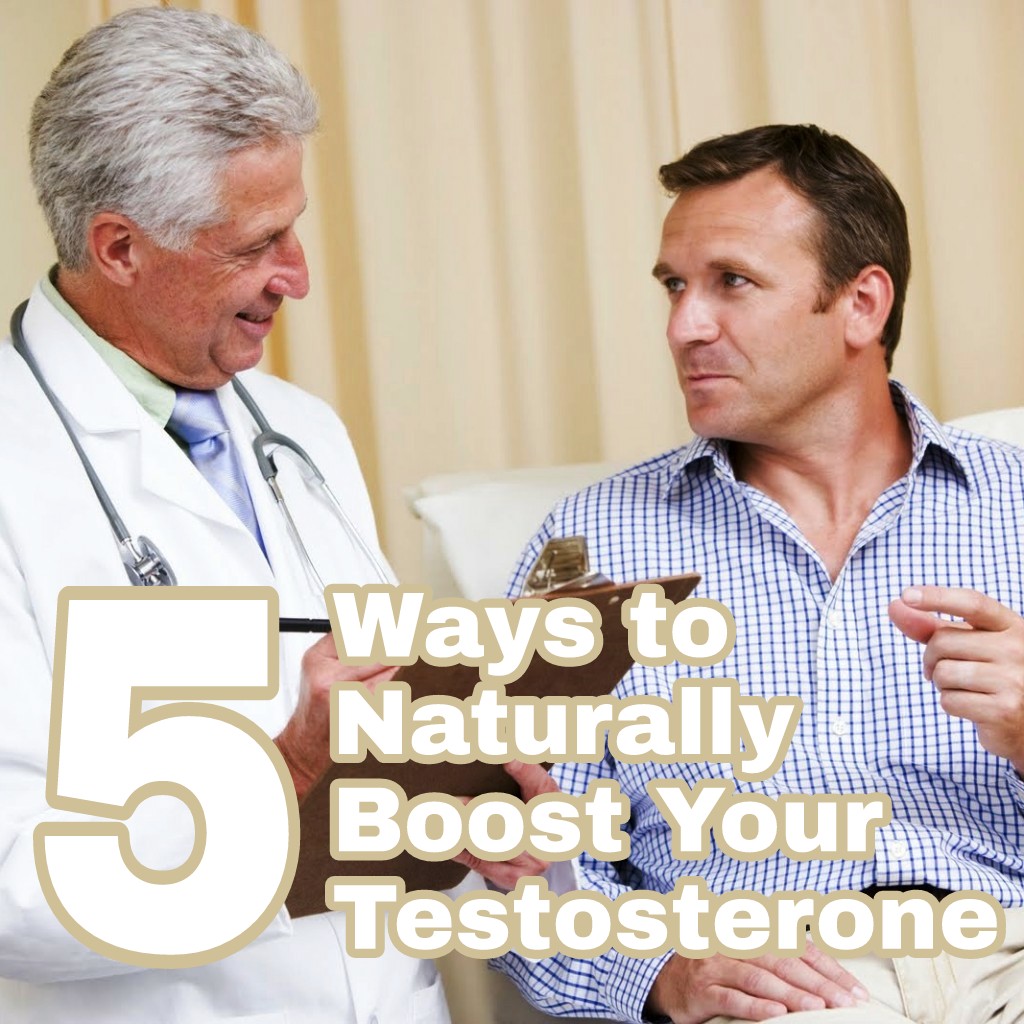6 Best Foods to Help Increase Low Testosterone
- Published in Testosterone Replacement Therapy

Having adequate levels of testosterone is a vital factor in determining your quality of life. For beginners, testosterone is a male sex hormone found in men and women found to be important for energy, fertility, healthy sexual functions, and building muscle. Testosterone is one of the main causes of physical changes for boys during puberty, like promoting deeper voice and hair growth. Generally, a person’s testosterone level will steadily decline as you age, depending on medical conditions, lifestyle choices, and other factors. A decreasing T level can result in a lot of changes in your body, including a lower sex drive.
5 Signs Your Testosterone is Too Low
- Published in Testosterone Replacement Therapy

Like all hormones, testosterone plays an important role in regulating a host of different processes in the body. There is no question maintaining optimal levels of testosterone is ideal to a healthy lifestyle. Testosterone is an essential hormone responsible for male development, masculine characteristics, building muscle, fueling sex drive, and receptors exists throughout the body. This hormone is primarily produced in the male testicles and womens’ adrenal glands. As we age, testosterone production begins to slow down. If you have low levels of testosterone, the consequences can greatly affect your health.
5 Ways to Naturally Boost Your Testosterone
- Published in Testosterone Replacement Therapy

When you see the term “testosterone,” we typically associate it with masculinity and men. However, women generate testosterone too. So, what exactly is testosterone? Testosterone is a steroid hormone that plays a significant role in the male sperm production and produced in women’s ovaries in much smaller amounts. Rising levels of testosterone stimulates physical and chemical changes for boys and men such as increased muscle, pubic hair growth, deeper lengthened vocal chords, and increased sexual desire.
Testosterone production significantly spikes during puberty and starts to drop after age 30. Having optimal levels of the steroid hormone is essential from puberty throughout adulthood for general health, aids in preventing certain chronic diseases, and increases energy levels. As our levels of testosterone naturally decrease over time, rest assured there are ways to naturally boost it back up.
Hematocrit (blood thickness) elevation following testosterone therapy – does it increase risk of blood clots?
- Published in Testosterone Replacement Therapy

In discussions about side effects of testosterone treatment, prostate cancer and heart disease get most attention. However, as we have described in several study reports published here in the “Research News” section, the widespread fear of prostate cancer and heart disease is unfounded and not supported by medical research.
The expected potential side effect of testosterone treatment - which in fact is a therapeutic effect in men with anemia [1-3] - is an increased level of red blood cells, known as erythrocytosis or polycythemia.[4-7] In the context of testosterone treatment, erythrocytosis and polycythemia are used interchangeably to refer to an abnormal increase of red blood cells or hematocrit, which may increase blood viscosity (“blood thickness”).[8, 9]
However, it should be pointed out that technically, erythrocytosis is just red blood cell elevation, while polycythemia involves elevation of red blood cells, white blood cells, and platelets. Using these terms as synonyms can cause confusion. In polycythemia, it is likely the increase in platelets that is the major culprit of blood clots.
Elevated hematocrit is the most common side-effect of testosterone treatment.[4-7] The clinical significance of a high hematocrit level is unclear, but it may theoretically be associated with an increased risk of thrombosis (blood clots).[4]
Here I summarize the results of an analysis of the effect of different testosterone preparations on hematocrit elevations, published in the journal Sexual Medicine Reviews.[10]
Does Sex Boost Testosterone Levels?
- Published in Testosterone - Men

Testosterone Thresholds and Muscle Mass Gains Needed to Enhance Muscle Strength and Function
- Published in Testosterone + GH combined

DHEA supplementation in older adults helps reverse arterial aging
- Published in DHEA

When it comes to health promotion and longevity, DHEA is a supplement which deserves more attention than it has been getting.
DHEA levels (the main circulating form of DHEA in the bloodstream is DHEAS) decrease approximately 80% between ages 25 and 75 year.[1, 2]This large decline in DHEA has led to interest in the possibility that aging related DHEA deficiency may play a role in the deterioration in physiological and metabolic functions with aging, and in the development of chronic diseases.
In support of this, it has been reported that DHEA level is negatively correlated with mortality and risk of developing cardiovascular disease (CVD) (i.e. lower DHEA(S) levels are associated with higher mortality and CVD risk).[3-5]More recently it has been found that a steep decline or extreme variability over time in DHEA(S) levels is associated with higher mortality, more so than baseline DHEA(S) levels.[6]
Aging not only reduces DHEA(S) levels, but also results in an increase in arterial stiffness [7, 8], which is an independent predictor of cardiovascular disease (CVD) risk and mortality.[9-11]
It has been reported that DHEA levels are inversely associated with arterial stiffness (i.e. lower DHEA levels are associated with increased arterial stiffness. [7, 12, 13] Therefore, it is possible that DHEA replacement in older adults could reduce arterial stiffness, and thereby contribute to reduction in CVD and mortality...



